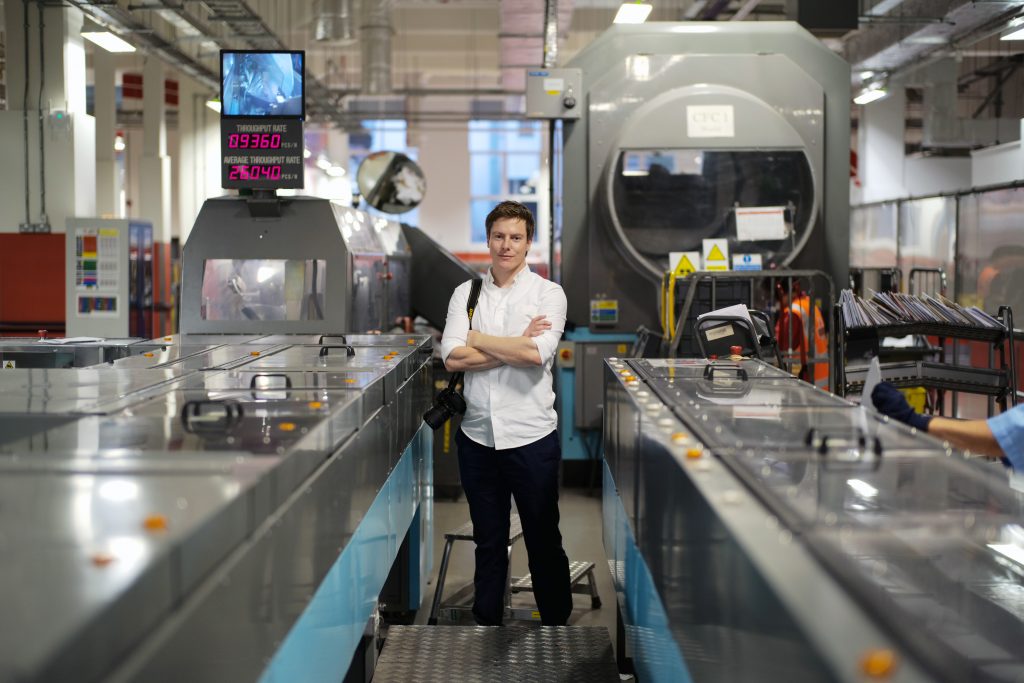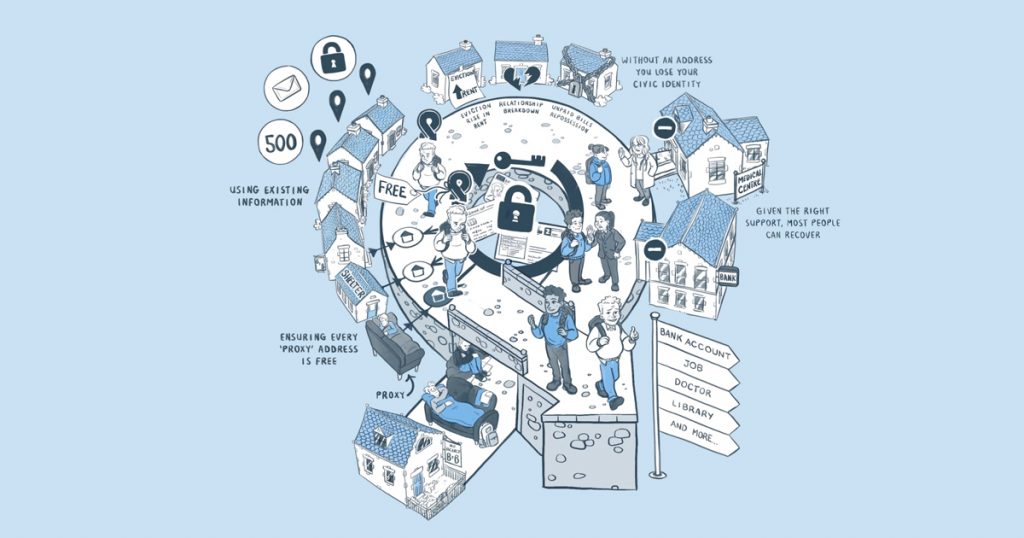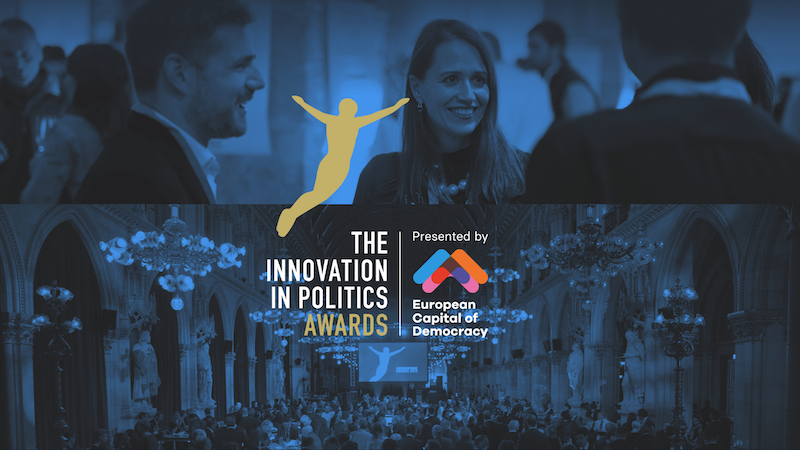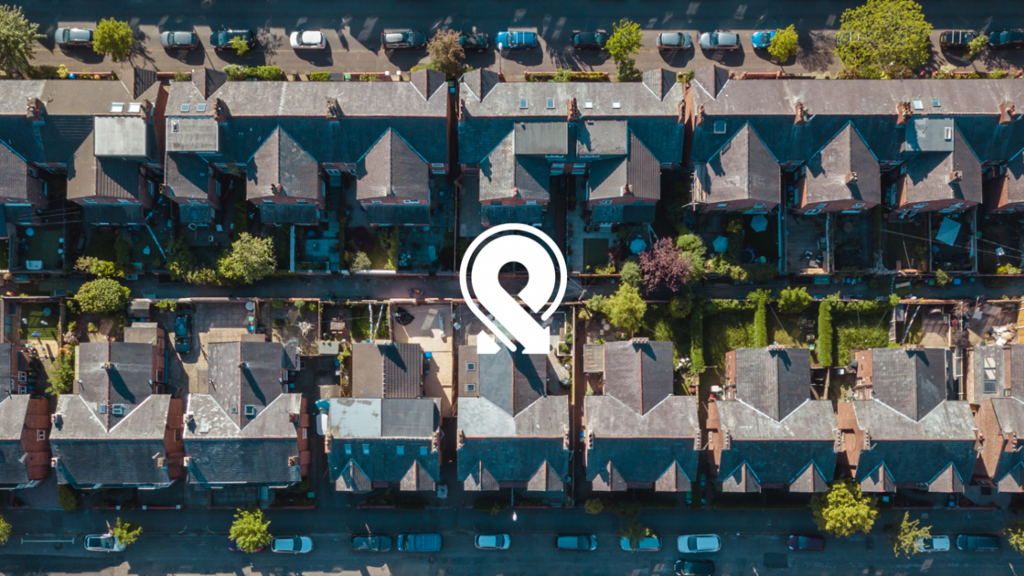People becoming homeless don’t only lose their home, but also access to exactly those services they need to get back on their feet. ProxyAddress, winner of The Innovation in Politics Award 2020 in the category Human Rights, gives UK’s homeless their lives back by giving them an address. We spoke with architect Chris Hildrey about how he came up with the idea and how not even a pandemic could stop him from making the project come to life.
What impact have you been able to see with ProxyAddress so far?
Chris Hildrey: We are still in the pilot phase and as with any pilot, you have to test it and stress-test it in difficult circumstances and, with Coronavirus, we have had no shortage of that. But we have already been able to change people’s lives and it’s been fantastic to see. We have had people who have been rough sleeping for years who are now back into permanent accommodation with jobs and a whole new career. We have had people who have been escaping domestic violence situations and have been able to set up a whole new life that otherwise they couldn’t have. So, we are looking forward to bringing it to more people as soon as we can.
Did you get any feedback from citizens about the project?
Chris Hildrey: We did, yes. Things like the Innovation in Politics Award, or a recent BBC article have helped to bring ProxyAddress into the public consciousness and the feedback we’ve had to those has been absolutely breathtaking. People want to support in any way they can, including donating their own addresses – or making financial contributions directly to somebody who is homeless. The amount of support has been incredible.
You are an architect and advocate for the importance of design to help bring about positive social change. Could you elaborate on that?
Chris Hildrey: It has been interesting to move into the world of homelessness as an architect because you are trained in how the city works and how “the built environment“ works, this is a phrase that gets used a lot. My interest was to try and make the built environment as inclusive as possible. Ultimately, I wanted to improve how we live in cities and towns. But my agency in my role as architect didn’t extend that far. I was not asked what should be built. I was asked to design what was already going to be built. But this did not work for me.
I was trained to look around me and see the impact of various changes that happen in a city over time. And since my career had this backdrop of austerity throughout the UK, I could see libraries closing, public land being sold off, play parks closing, and homelessness rising. So, what I wanted to do with ProxyAddress was to find a way to use my skills as an architect and find a way to implement it directly for those who need that kind of help. I did that through system design. First of all, I spent many months speaking with homeless people and then to try and unlock that situation. The systems we use to underpin a city are flexible, and they can be changed. So my role was to go in and find a way to change these systems to work for those in need.

How did you find the political backing to get your project off the ground?
Chris Hildrey: This is a really interesting part of the problem and a great part of my personal learning curve: moving from the exciting world of design to something that can be quite dry and procedural, like legislation. When a designer walks into a room of people who they would never normally be with, and says, “Here is my vision, now please can everyone change to accommodate my vision?” – that’s not good design. Good design isn’t expecting the world to change to meet your needs. Good design is working around the existing landscape.
So I tried to understand everything that I could get between me and getting it done. Many people called me disruptive, but rather, it was through aggressive compliance that my role gained traction. Especially at the beginning, I had to understand financial regulations, postal regulations, operations, and reasons why things wouldn’t potentially work and then work around that. This made it possible for me to go into that room and say, “Here is my vision, you don’t have to spend any money, you don’t have to retrain any staff, you don’t have to change the way you work – just partner with us. This is how we can make an impact.” And that’s a much quicker way to get through a meeting.
How did you get Tom Copley, Deputy Mayor of London for Housing interested in supporting ProxyAddress?
Chris Hildrey: ProxyAddress started from a very fortunate position since it came about when I was named one of the designers in residence at the Design Museum in London. Even though I was the project architect of the National History Museum redesign during the other half of the week, this gave me time and space to research other avenues of interest. When I asked to speak with Tom about ProxyAddress and he agreed, I was taken aback by his passion for righting the injustices that came about as a result of legacy systems. He was also a councillor in Lewisham, London and his determination for change helped inform the conversations that were already happening there.
As a borough, Lewisham proved to share his passions and that’s now where we’re holding our first pilot. He is also incredibly interested in architecture because he has such a strong focus on the importance of housing. When we met at the museum, I was able to show him the output of that residency, which was essentially the first stage proposal for ProxyAddress. From that point onwards he saw the potential impact and took a real interest in it. I was able to explain to him the ability to create such a big change from such a small intervention and he in turn shared his insights about possible difficulties with implementing existing homelessness and housing policy. His advice has been fantastic throughout.
Can you give examples on what kind of advice that he was able to give?
Chris Hildrey: Tom is on the advisory board of ProxyAddress and his contribution has been a kind of ever-present guide, providing a constant dialogue that is steering the project. The path of ProxyAddress from idea to fruition, from concept to reality, has been a series of decisions. These decisions had to be guided by a single principle: to constantly check to see if it will create meaningful change for the people who are actually dealing with the consequences of being homeless.
Throughout, Tom Copley has been very good at helping to retain that guiding principle. You might look at the role of someone in the political sphere as being slightly detached, but that’s very much not the case with Tom. It’s all about the end impact, and that’s the benchmark against which we have to hold ourselves accountable.
How did Coronavirus influence the project?
Chris Hildrey: We were due to launch our pilot in mid to end of March 2020, so that correlated exactly with the pandemic. The challenge with ProxyAddress was the large number of moving parts, not just the team, but all the stakeholders, as well. It was like conducting an orchestra to a joint crescendo – and then there came Covid, breaking a variety of strings. Suddenly everything was discordant, some areas were suffering more than others or at different times and in different phases.
I had to wrestle this orchestra of damaged instruments back together into a harmony and that took a lot of time. I had to retain momentum and to maintain relationships with all stakeholders despite the fact that significant issues were happening on their end, as well. That was certainly a big challenge, but I think it prepared me well. Back then we didn’t know that Covid would last this long, and having to move forward in many parallel, contingent ways at once has become a new way of operating these days. You never quite know what’s going to happen in the medium to long term.

What did you learn about conducting your orchestra of stakeholders? How do you make them play well together?
Chris Hildrey: The stakeholders need to be curated in a sense because you don’t want to end up duplicating work or creating unnecessary activity. But when it reaches that stage where you can stand back and see that the instruments are being played well, it ends up being much more than the sum of its parts; it creates an impact that could never be done with any one stakeholder on their own. It all has to come together.
Which changes that you had to make due to Covid turned out to be positive for the project?
Chris Hildrey: A couple of interesting things came up. One was obviously in connection with physical distancing. Everything had to work remotely and our role as ProxyAddress was to make sure that we weren’t putting any burdens on anybody. So, for instance, we had to avoid introducing things to the process that would require something that was very difficult to get. So, we couldn’t necessarily require people to have a face-to-face meeting, but we couldn’t also require them to, let’s say, have a really sophisticated app on their phone because they might not have a phone that can handle the latest apps.
I think that was really useful because the more remote you can make things, the more convenient they become. One of the many unfair situations in which people facing homelessness find themselves is that they are suddenly required to attend many more meetings. This means they have to spend more of what little money they have on travel, and spend more time away from finding a job or trying to fix their situation.
Secondly, the increase in cases of domestic violence made us focus on that problem more. One person in particular comes to mind; she had left her abuser but when I spoke to her, she was just about to return to him because she was homeless. Without an address, she could not open a bank account, apply for a job, or access support services. So we made ProxyAddress work during the pandemic and she – and others in similar circumstances – were able to get out of their situation and start a new life. Their new ProxyAddress does not disclose their location, which adds to their safety. We have been learning a lot of these lessons and they have all been very useful for the future.
What you said about giving opportunities to do things remotely: were there any issues regarding digital literacy?
Chris Hildrey: This is certainly one of the constraints of the project and it is a high priority for us to get around it, as well as the lack of English literacy, computer skills, or access to certain technologies.
If someone does not have a mobile, we have charity partners which allow us to get them a phone. Additionally, we offer a physically distanced assistance to help people to register and access the system. Our job is to make sure that hurdle is as low as possible and ideally as low as the actual ground level itself.

What are the next steps? Did other parts of London approach you or are you approaching them to move the project along?
Chris Hildrey: Yes, and it is critical to me to expand the project in a sustainable way. Because ProxyAddress will be somebody’s lifeline and this lifeline has to be secure and robust. My approach is like building a pyramid: the first layer of the pyramid takes by far the longest and then it gets quicker and quicker the farther up you go. But the longer you spend on that first layer, the more robust it is and the higher it can go. And that’s what we have done here.
So, I am keen that the next milestone involves multiple councils. And again, it’s about testing it under difficult circumstances, so we have conversations with councils across England including Wales and Scotland, where we will have to adapt to different contexts and devolved policies. So we’ll test the pilot in one location, then move to testing in multiple locations, and then progress towards making it available nationwide.
What needs to be in place for ProxyAddress to work?
Chris Hildrey: There are three critical areas that need to be satisfied. One is the legislative side. The second is the private partnerships – so, making sure that you comply with all necessary stakeholder requirements. And thirdly, there is the user side. Here, the really important thing is demonstrating that you’re worthy of trust. If there is mistrust between a service provider and the people who need that service, that’s a very difficult situation to unlock.
ProxyAddress works at satisfying all three of them. We are helping public sector departments to meet their targets on reducing homelessness as quickly as possible. For the private sector we are a partner who can navigate the relevant legislation and constraints and still create impact. And with the users we can say, “we are here to do nothing else but to help you in this situation,” and help establish that trust. But this trust can only be built by demonstrating our intent over time.
Most importantly, to allow something like ProxyAddress to take place, there needs to be political will. Regarding the cooperation of the private sector, I found that it is important to lower the bar of entry for cooperation as much as possible so that it is as easy as possible for those organisations to take part. It’s important to empathise with the fact that, even if they want to help, their primary duty is to their existing customers and stakeholders. Therefore, it’s our duty to make sure that adopting our service will have a positive impact on their existing priorities. And then with users there has to be fertile ground into which a trusting relationship can be built.
What would be your advice for other politicians in other cities who want to implement a project like ProxyAddress?
Chris Hildrey: My advice would be to start speaking with those who are going to be affected and who have lived experience because they know the problem better than anyone. After that, it’s about speaking to the organisations, institutions, and bureaucratic bodies that need to implement it. But start with speaking to people who are living it. Their insights have by far driven ProxyAddress the most. And, by all means, speak with us!
Find our more about the project in our showroom!
Project Website: https://www.proxyaddress.co.uk/
Hildrey Studios: https://www.hildreystudio.com/
Continue reading

Finalists for The Innovation in Politics Awards 2025


